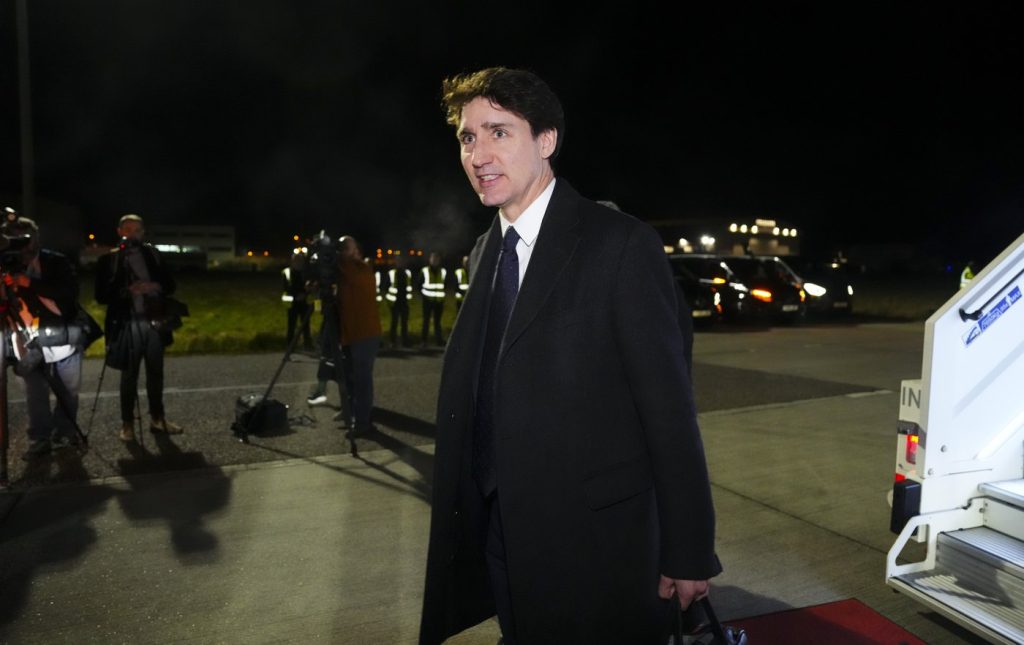LONDON — Prime Minister Justin Trudeau is currently in London for a significant summit focused on European defence. This crucial gathering of leaders aims to establish conditions for lasting peace in Ukraine as the United States reduces its involvement in European security matters.
Trudeau is participating in discussions with numerous European leaders centered on how to deter further Russian aggression following its invasion of Ukraine that commenced three years ago. Canada’s High Commissioner to the U.K., Ralph Goodale, noted that the summit's objective is to secure "long-term security guarantees" to ensure that Ukrainians can anticipate peace as their everyday reality, rather than living under the persistent threat of oppression from an unreliable neighbour.
During his visit, Trudeau is scheduled to hold a bilateral meeting with British Prime Minister Keir Starmer and will subsequently address Canadian media in an afternoon press conference. He plans to return to Ottawa on Monday after concluding his engagements in London.
According to Stephen Saideman, a professor at Carleton University, Trudeau's presence in London is crucial for maintaining Canada’s relevance in an evolving European security landscape as European nations reassess their own defence strategies in the absence of substantial American support. Saideman emphasized that Canada’s chief interest is to avoid being overlooked in European security discussions, indicating the importance of solidarity in this context.
Trudeau’s message to the European leaders will likely focus on resisting economic coercion from the former U.S. President Donald Trump, as well as coordinating collective responses to tariff-related issues. Saideman highlighted that Canada is firmly committed to European security, while also expressing hope that European nations reciprocate this commitment towards Canadian security.
As the director of the Canadian Defence and Security Network, Saideman pointed out that Trudeau could provide European leaders with a continued North Atlantic security framework. This infrastructure would remain relevant even as the U.S. distances itself from NATO alliances and reassures that security challenges faced by Europe are, in essence, challenges for the broader Western community.
Saideman further elaborated that recent tumultuous exchanges among U.S. political figures have reinforced European apprehension regarding Trump's "America First" foreign policy. The realization of this reality has been met with difficulty among European leaders due to the significant consequences posed by such a diplomatic stance. The ongoing conflict in Ukraine and related media coverage have made it hard to dismiss the gravity of the situation.
As the summit progresses, it will include efforts to translate supportive statements for Ukraine from European leaders and Trudeau into actionable initiatives. This could see discussions on utilizing frozen Russian assets in Europe to bolster Ukraine’s war campaign, along with increased integration of European nations into collaborative security frameworks.
Saideman suggested that Trudeau might contemplate alternatives to procuring F-35 fighter jets from American companies, possibly considering Eurofighter planes instead. Such a move could result in legal disputes over existing contracts. He emphasized the pressing need for innovative approaches, urging Europe and Canada to rethink their relationship with the United States, viewing it as an adversary rather than an ally moving forward.
This summit represents a pivotal moment for Canada and its European counterparts as they reassess the dynamics of their alliances and security commitments in the context of shifting global political landscapes.










